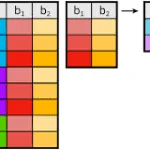In the 70-761 exam covers the SQL Server 2016. Since this exam covers the data query, most of the topics that are included in the 70-461 exam are also covered. So, if you are familiar with that exam, then you are in luck!
If not, then I would recommend that you check out our study guide as it details every topic is included in the 70-761 exam.
The purpose of this post is to highlight the added topics, which fortunately are few.
JSON – JavaScript Object Notation
JSON is a popular text format used for exchanging data between applications. It is used in mobile apps and is used to store unstructured data. Are you familiar with XML? Then, you need to check out this example.
With the prevalence of JSON, it just makes sense that the SQL Server can handle this format as it can with XML. With the key JSON capabilities, you would want to focus on the 70-761 exam regarding how to:
- Store JSON documents in SQL Server
- Import JSON documents into SQL Server
- Index JSON data
- Validate JSON data
- Query and modify JSON data using built-in functions.
To prep for this section of the 70-761 exam, I recommend visiting the post JSON data in SQL Server.
Temporal Tables
A temporal is part of the ANSI SQL 2011 specification. A temporal table provides built-in support for providing information about data stored at any given time within a table, as opposed to the last save. Since this is new to the SQL Server 2016, you can expect to see this heavily covered within the 70-761 exam.

This would allow for a point-in-time analysis as a full history of the table, where changes are maintained without the DBA having to keep separate log files.
There are several reasons to use temporal tables including:
- Auditing – provide a built-in audit trail of changes.
- Constructing Trends – provides a means to show trends in data changes.
- Forensics – show a history of data changes
- Recovering from accidental data changes.
You want to know how temporal tables work – how to create temporal tables and query them.
Each of these three concepts are new, but the extensions of items you should already know. For example:
Creating Tables – You’ll still use the CREATE Table command; however, now you specify a history table.
Querying Tables: This is when temporal tables are created, special column SysStartTime and SysEndTime are created, and their values are automatically maintained. For you to query temporal tables, you will have to query a special column named SYSTEM_TIME.
Conclusion
Though there aren’t many new topics on the exam, they can be conceptually difficult. So, please study!
Speaking of studying, may I recommend you to our 70-761 Exam resource page? In there, you will find several useful articles, books, and guides to help you with your certification.





Leave a Reply